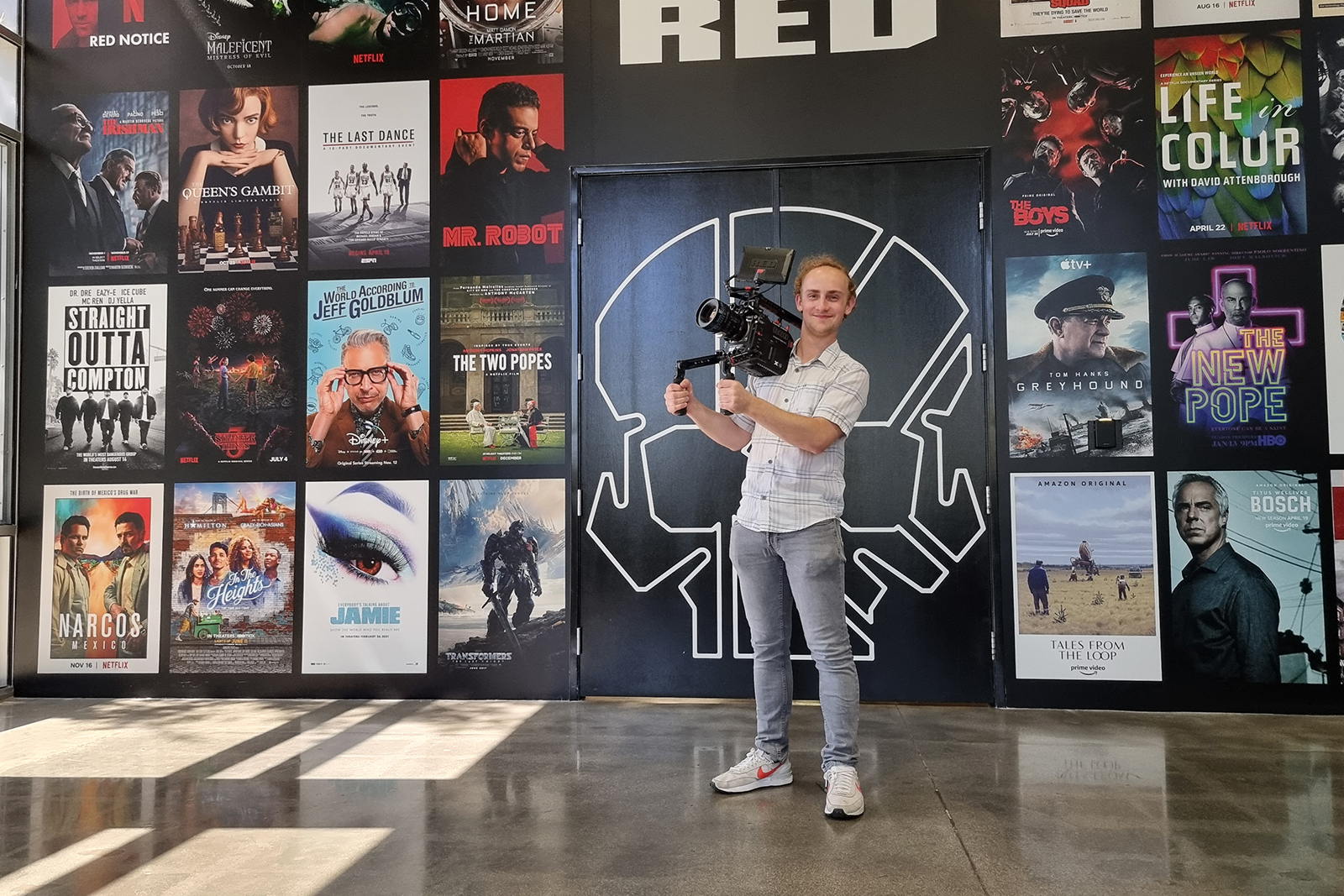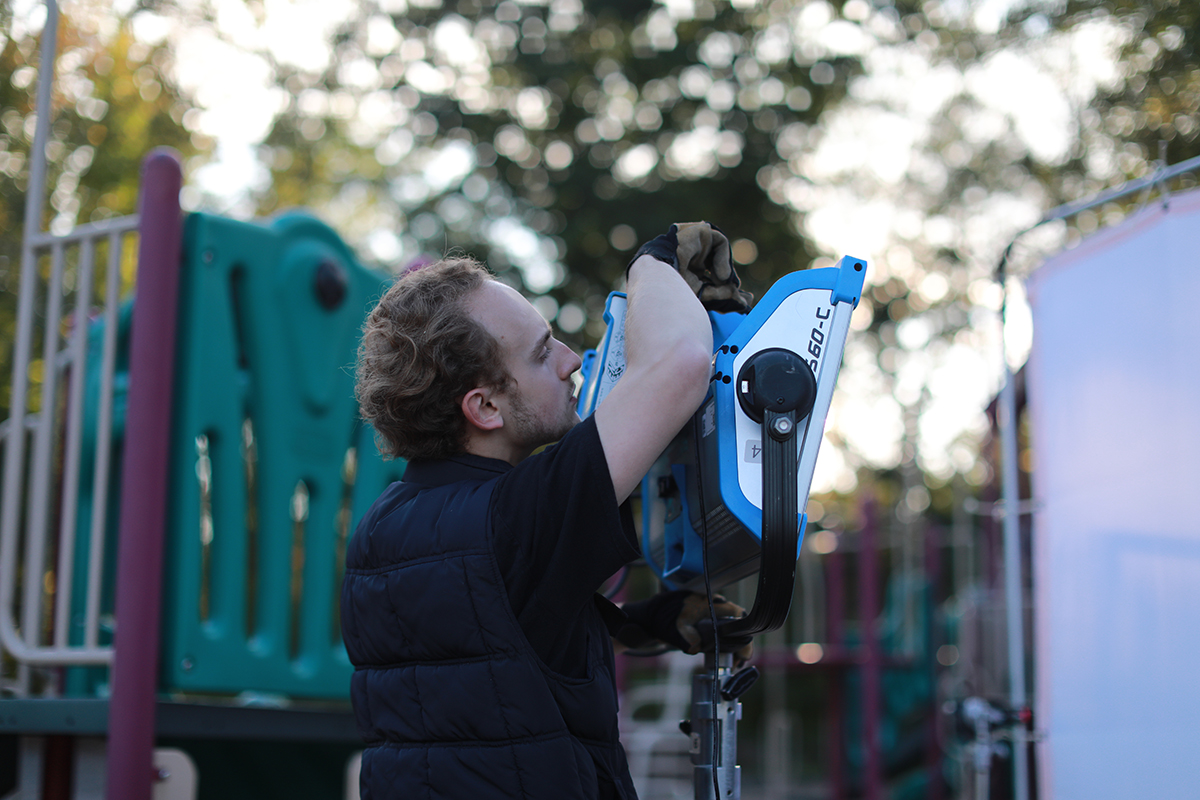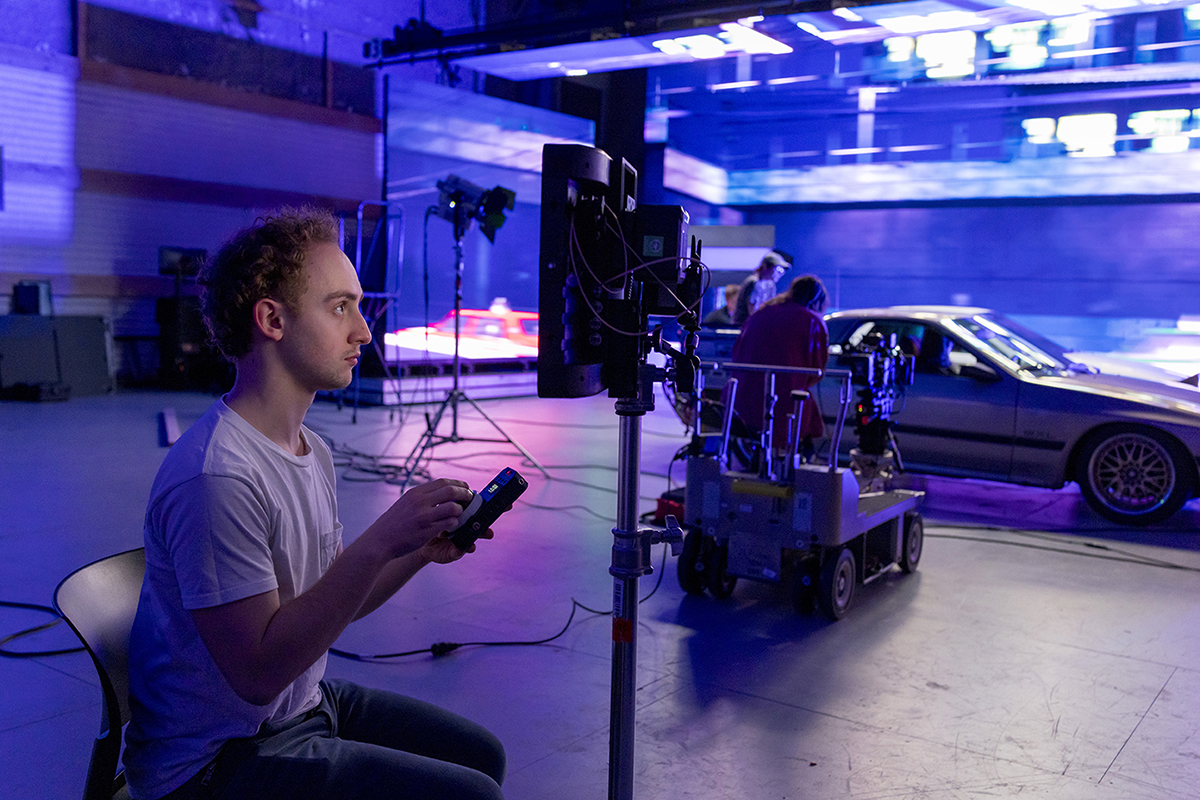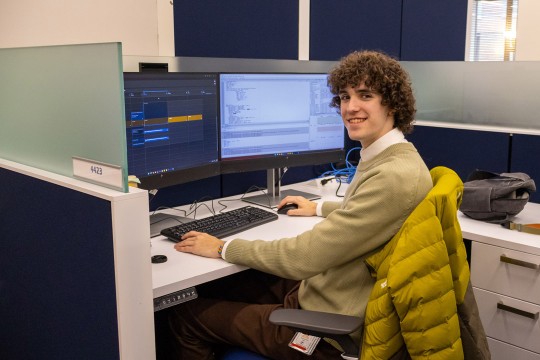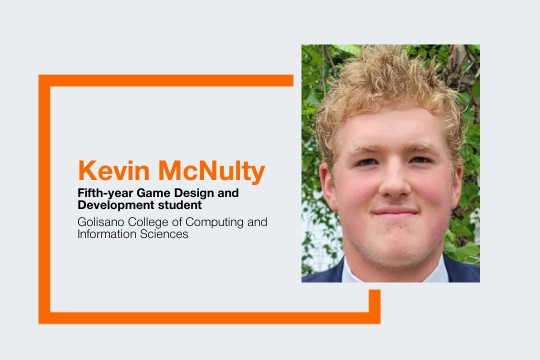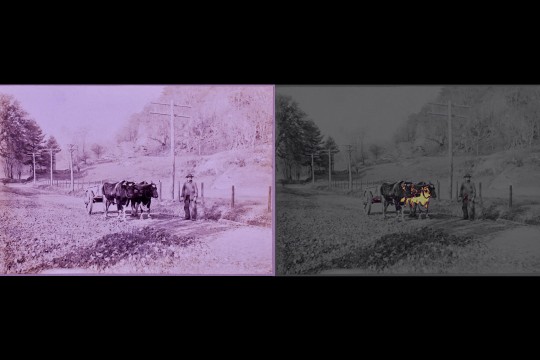Student's late start turns into Hollywood ending at RIT
While on co-op at Universal Studios, Max Schaefer was able to visit RED Digital Cinema, a well-known camera manufacturer specializing in digital cinematography.
By the time Max Schaefer ’25 (motion picture science) grew interested in filmmaking late in high school, he felt “late to the game.”
Fortunately for him, he’s a quick study with a willingness to take advantage of the countless filmmaking and technology resources RIT offers.
He was a mainstay on student and commercial production sets. A live shader for RIT Sports Network hockey broadcasts. A projectionist for School of Film and Animation student film screenings. A Performing Arts Scholar. A leader in RIT’s Fraternity Life community. Conducted virtual production, motion capture and color research through MAGIC Spell Studios. And enjoyed an inspiring work experience with Universal Studios Hollywood.
Turns out, he was right on time.
“I knew I needed to work hard to catch up to my classmates so I did as much as I could for four years,” said Schaefer, from Schenectady, N.Y.
Schaefer constantly broadened his knowledge of cameras by working many weekends on the set of student film productions.
Intrigued by “the attitude RIT has toward cutting-edge technology,” Schaefer enrolled in the motion picture science program. He researched the latest technologies and workflows in the film industry while also making films in production classes.
“I’ve always internalized the world from whatever the smallest piece is,” he said. “Being able to understand filmmaking from the photons that make it up was huge for me. Having been through all the courses, I can confidently tell you how a photon gets out of the sun and onto your phone to watch something.”
Schaefer expanded on his coursework at one of the world’s largest film studios, Universal Studios Hollywood, completing a co-op there last summer as a creative technologist. He worked directly with Annie Chang and Horst Sarubin, two accomplished film technologists who have collectively led breakthrough innovations at Universal, Marvel Studios and The Walt Disney Studios.
A professional connection David Long, director of MAGIC Spell Studios, has with Chang helped secure the opportunity.
Among Schaefer's core responsibilities at Universal was assisting on building a database — and associated tools like AI — to improve production ontology workflows. Production ontology is a framework for tracking and documenting production-related data, from crew productivity to storyboards to the amount of time an actor appears on camera.
Traci Westcott
Schaefer had plenty of exposure to virtual production technology between his co-op at Universal and through MAGIC Spell Studios. Here, he helps with a film shoot using the workflow that combines film with computer-generated imagery and game engines to make realistic environments.
Schaefer worked with a team on creating links in the database so information became human searchable, such as locating exact camera files a certain actor appears in to streamline post-production processes.
In total, Schaefer worked on production management tools for three films while with Universal.
“Getting to work with (Chang and Sarubin) was like working with people who have seen it all at this point and are now building tools they wish existed when they were in visual effects,” Schaefer said. “It was really cool to learn everything about filmmaking at RIT and then bring it out to the industry”
For his capstone research, Schaefer leveraged RIT’s virtual production technology and LED wall to establish a rear projection technology workflow using driving plates. Driving plates are 360-degree videos captured from the perspective of vehicle occupants to show the surrounding exterior environment. Footage is then applied in visual effects shots and as LED backgrounds in driving scenes.
Schaefer made multiple driving plates for future RIT use on MAGIC Spell Studios’ LED wall, as a replacement workflow that is safer and more efficient than filming driving scenes outdoors. His time at Universal Studios prompted the idea.
“I worked on an LED stage there and they did all sorts of demos on driving plates,” Schaefer said. “They told me driving plates are the biggest use of virtual production in the industry.”
Schaefer (back row, fifth from left) and the rest of the RIT crew part of a motion capture short film that was made in MAGIC Spell Studios as an exploration into using motion capture as a production tool.
Schaefer was committed to serving the RIT community during his time on campus, too.
After joining Phi Delta Theta in 2022, this year he became president of the Interfraternity Council, the governing body for all RIT fraternities. He was instrumental in leading philanthropic efforts that raised money for causes like ALS and cystic fibrosis research.
“The four years here have been me making sure I’m well-rounded on all sides,” Schaefer said.










